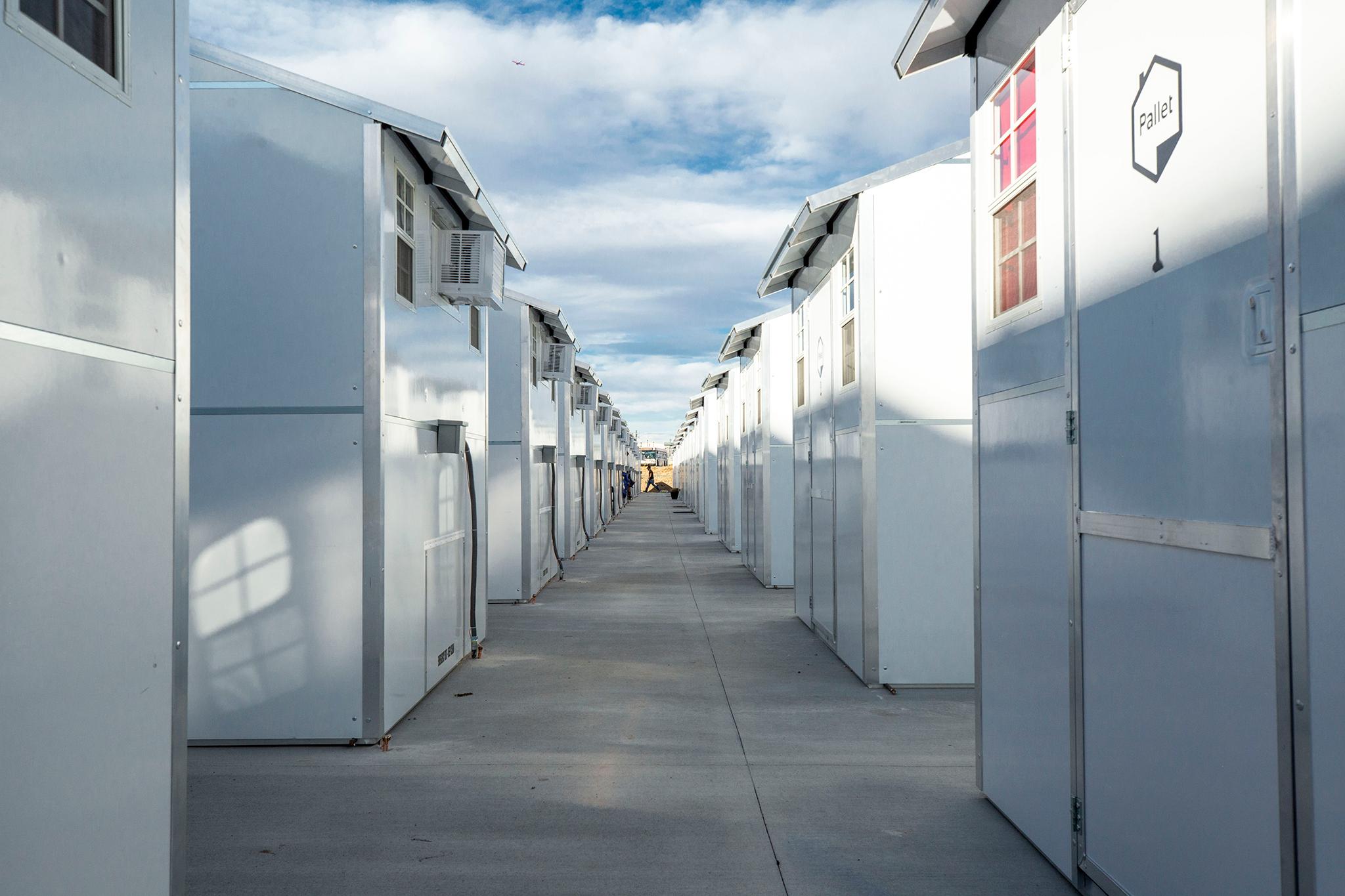In July, Mayor Mike Johnston declared a state of emergency on homelessness, and vowed to get 1,000 people off the streets by Dec. 31. On Tuesday, his administration took one step toward that goal: bringing a $7 million contract for 200 pallet shelters before City Council's Finance and Governance Committee.
The contract is with Pallet PBS Inc., a Washington-based company that has set up pallet shelter communities across the country. In 2021, Aurora contracted with the company to house 30 to 60 people.
The shelters would arrive in Denver by Nov. 1, and the contract would run through summer of 2024 with an option for a one-year extension.
While $7 million is the contract's maximum, city officials expect the shelters to cost around $5 million and set up to cost around $1 million. Funding will come from the Department of Housing Stability's budget, along with other city agencies. The city has not yet decided where the pallet shelters will be set up, and is currently soliciting proposals for contractors to run the site operations.
The contract passed with unanimous approval out of committee, and the full City Council will vote on it in the coming weeks.

The pallet shelters provide private shelters for each resident, with a bed, storage space, outlets, heating and air conditioning.
Each site would also include community space with laundry and bathrooms.
Cole Chandler, Johnston's senior advisor for homelessness resolution, said the pallet sites would be an interim solution while the city stocks up on longer term housing.
"We know that housing is the solution to homelessness and that is where our long term solutions point," Chandler said. "Pallet shelters will be a space that people can get off the streets immediately while they're working to move into longer term housing options."
The city has also been buying up hotels and motels to convert into single-occupancy shelter as well as long term housing.

The structure is similar to Denver's safe outdoor sites, where temporary residents are provided with tents and wraparound support services. District 5 Councilmember Amanda Sawyer, who has voiced opposition to safe campsites in the past, praised the pallet proposal.
"I think this is a huge improvement over the tents that we have previously paid for," she said Wednesday.
Advocates of the city sanctioned campsites, including many City Councilmembers, community members and nonprofit staff, agree that tents and pallets are not a long-term housing solution. But they believe the city should provide safer interim solutions to people living on the streets, while simultaneously working to grow Denver's long-term affordable housing and shelter capacities.

Yet some homeless advocates are questioning the push for short term solutions like pallets compared to permanent housing solutions.
If the city maxes out the contract at $7 million, that comes out to $35,000 per unit, not including the added costs of an organization running the site. That has some homeless advocates wondering if that money might be better spent elsewhere.
"That's not how we need to be spending $7 million or spending our political capital or land or energy," said Housekeys Action Network organizer Therese Howard. "That's not the kind of housing that houseless people want to live in."
Howard said short-term approaches like safe campsites can take a long time to set up. Residents do not have their own bathrooms, are subject to site rules and can get kicked out.
Instead of interim solutions, Howard wants to see the city set up a master leasing system, where the city or a nonprofit signs leases with landlords, and then sublets units to people experiencing homelessness. Howard says that system can get people off the streets quickly, similar to safe campsites and pallet communities but with more long-term housing.
"We've been doing 'quick fix' solutions to homelessness for the past 40-plus years, and it hasn't ended homelessness, and so to continue that pattern is not going to make any lasting change," Howard said.














